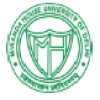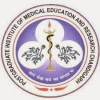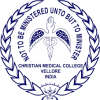How to become a Nurse Midwife
Overview, Courses, Exam, Colleges, Pathways, Salary

Overview
Who is Nurse Midwife ?
A nurse midwife is a healthcare professional specialising in providing comprehensive care to women during pregnancy, childbirth, and postpartum. They are registered nurses (RNs) who have obtained advanced education and training in midwifery. Nurse midwives offer a holistic approach to women's healthcare, focusing not only on the physical aspects but also on their patients' emotional and social well-being. Their role encompasses prenatal care, assisting in labour and delivery, and providing postpartum care to both the mother and newborn. Nurse midwives promote natural childbirth and aim to empower women to make informed decisions about their reproductive health.
Typical day at work
What does Nurse Midwife do?
- Provides comprehensive prenatal care, including regular check-ups, monitoring fetal development, and addressing any concerns or complications.
- Assists women during labour and delivery, offering emotional support, pain management techniques and ensuring the safety and well-being of both mother and baby.
- Conducts postpartum assessments and provides care for the mother and newborn, including breastfeeding support, postpartum education, and monitoring for any potential health issues.
- Offers family planning services, including contraception counselling and assistance with fertility concerns.
- Provides health education and counselling on nutrition, exercise, breastfeeding, and newborn care.
- Collaborates with other healthcare professionals to ensure coordinated and holistic care for women throughout their reproductive lifespan.
Abilities and Aptitude needed
What are the skills, abilities & aptitude needed to become Nurse Midwife?
Becoming a nurse midwife requires a wide range of skills, abilities, and aptitudes to provide comprehensive care to women during pregnancy, childbirth, and postpartum. Here are the essential qualities needed to excel in this profession:
Clinical Knowledge: Nurse midwives must possess a strong foundation in clinical skills and knowledge of obstetrics, gynaecology, and neonatal care. They need to understand the physiological and anatomical changes during pregnancy, be proficient in conducting prenatal assessments, and possess expertise in managing labour and delivery.
Critical Thinking: The ability to think critically and make quick decisions is crucial for nurse midwives. They must assess and interpret complex medical data, monitor labour progress, identify potential complications, and make evidence-based decisions to ensure the safety and well-being of both mother and baby.
Effective Communication: Nurse midwives must have excellent communication skills to establish a rapport with patients and effectively communicate complex medical information clearly and empathetically. They should be skilled at active listening and educating and counselling women and their families about their healthcare options.
Emotional Intelligence: Providing care during childbirth requires emotional intelligence. Nurse midwives must be empathetic, compassionate, and able to emotionally support women and their families throughout the entire childbirth experience. They need to understand and respond sensitively to the emotional needs of their patients.
Adaptability and Resilience: The childbirth process can be unpredictable, and nurse midwives must be adaptable and resilient in managing unforeseen situations. They should remain calm under pressure, handle emergencies with confidence, and be prepared to make quick decisions to ensure the safety of both mother and baby.
Cultural Competence: Nurse midwives work with diverse populations, and cultural competence is essential to provide equitable and culturally sensitive care. They should understand cultural practices, beliefs, and customs related to pregnancy and childbirth to ensure respectful and inclusive care for all individuals.
Collaboration and Teamwork: Nurse midwives work closely with other healthcare professionals, such as obstetricians, paediatricians, and nurses. Effective collaboration and teamwork are essential to ensure coordinated care and seamless transitions throughout the childbirth process. They should be skilled at interdisciplinary communication and work effectively within a team.
In summary, nurse midwives require clinical knowledge, critical thinking, communication skills, emotional intelligence, adaptability, cultural competence, and collaboration to provide high-quality care to women during pregnancy, childbirth, and postpartum.
Salary
Salary for Nurse Midwife?
Salary for Nurse Midwives in India:
-
Entry-Level Annual Salary: Entry-level Nurse Midwives in India can expect an annual salary ranging from INR 2,00,000 to INR 4,00,000. These earnings are typical for those who are starting their careers in providing maternal and newborn care.
-
Experienced Annual Salary: Experienced Nurse Midwives with several years of practice can earn an annual salary ranging from INR 4,00,000 to INR 6,00,000 or more. Their expertise in midwifery practices, assisting in childbirth, and providing quality care contributes to their higher earnings.
-
Location Influence: The geographic location of employment plays a significant role in determining salary. Urban areas or regions with higher demand for midwifery services may offer better compensation.
-
Type of Healthcare Facility: Working in hospitals, maternity centers, or private clinics can impact the salary of Nurse Midwives. Specialty hospitals with advanced maternity care might offer higher pay.
-
Skill Set and Expertise: Nurse Midwives with advanced skills, such as managing complicated deliveries, providing antenatal and postnatal care, and conducting childbirth education classes, might receive higher compensation.
-
Additional Responsibilities: Nurse Midwives who take on additional responsibilities, such as mentoring junior staff, leading maternal health programs, or participating in research projects, may receive higher salaries.
-
Government vs. Private Sector: Nurse Midwives employed in government healthcare facilities might receive benefits like job security and pensions, while those in private settings might have higher earning potential.
Career Benefits:
- Nurse Midwives are essential healthcare professionals specializing in maternal and newborn care, contributing significantly to maternal and child health.
Job Satisfaction:
- Nurse Midwives often find immense job satisfaction in assisting in childbirth, supporting women during pregnancy, and providing care that directly impacts the well-being of mothers and infants.
Pathways
How to become an Nurse Midwife?
Entrance Exam
Entrance Exam for Nurse Midwife ?
Courses
Which course I can pursue?
Best Colleges
Which are the best colleges to attend to become an Nurse Midwife?
Industries
Which Industries are open for Nurse Midwife?
- Hospitals: Nurse midwives can work in labour and delivery units, maternity wards, and women's health clinics within hospitals.
- Birthing centres: Nurse midwives can provide care in freestanding birthing centres emphasising natural birth experiences.
- Obstetrics and gynaecology practices: Nurse midwives collaborate with OB/GYN physicians in providing women's healthcare services.
- Public health agencies: Nurse midwives can work in government agencies to contribute to public health initiatives.
- Home birth services: Some nurse midwives offer home birth services for low-risk pregnancies.
- Academic institutions: Nurse midwives can work in educational settings, teaching future healthcare professionals or conducting research.
- Private practice: Nurse midwives can establish private practices, offering personalised care to women throughout their reproductive journey.
internship
Are there internships available for Nurse Midwife?
Yes, nurse midwives can apply for internships. These internships give prospective nurse-midwives useful, practical experience and let them put their classroom learning to use. Hospitals, birthing centres, and women's health clinics are just a few healthcare settings where internships could be available. During these internships, individuals may collaborate with skilled nurse midwives, doctors, and other healthcare professionals, getting exposure to midwifery care. Internships allow you to witness and participate in women's health services such as prenatal care, labour and delivery, postpartum care, and other services. They provide an opportunity to advance knowledge of the nurse midwife's function in healthcare, develop clinical competencies, and create professional networks.
Career outlook
What does the future look like for Nurse Midwife?
The future for nurse midwives appears promising, with several factors indicating a positive outlook for this profession.
Firstly, there is a growing recognition of the importance of midwifery care in improving maternal and infant health outcomes. Nurse midwives are vital in providing comprehensive, personalized care throughout the reproductive journey, including prenatal care, labour and delivery, and postpartum care. Their expertise in promoting natural childbirth and supporting women's choices aligns with the increasing demand for holistic and patient-centred care.
Secondly, there is a rising emphasis on expanding access to healthcare services, particularly in underserved areas. Nurse midwives are well-suited to address this need, as they can provide primary care services and fill the gap in maternity care for women in rural or remote communities.
Additionally, the advancement of technology and telehealth presents opportunities for nurse midwives to deliver virtual care, enhancing accessibility and convenience for patients.
Furthermore, the ongoing shortage of primary care physicians has highlighted nurse-midwives importance as key healthcare providers. Collaborative models of care involving nurse midwives working with physicians are gaining traction and are expected to grow.
Overall, the future for nurse midwives looks promising, with increasing recognition of their vital role in promoting maternal and infant health, expanding healthcare access, and addressing healthcare workforce challenges.




.webp)


